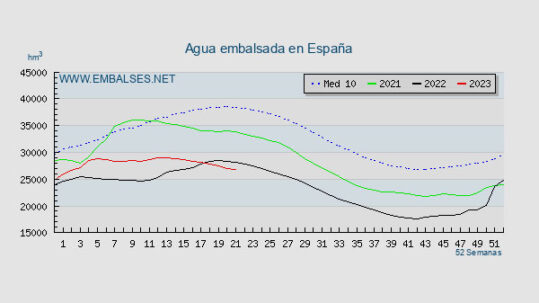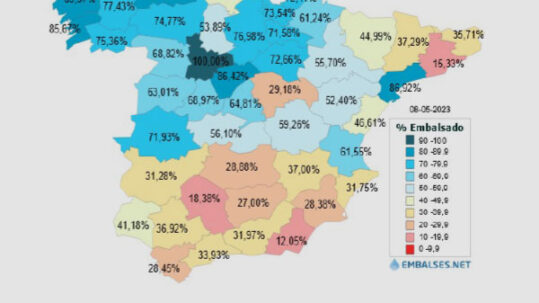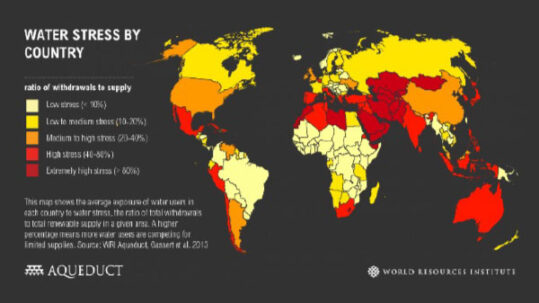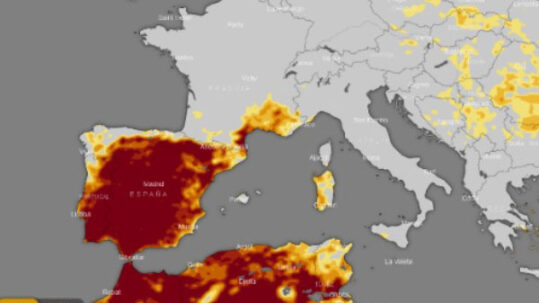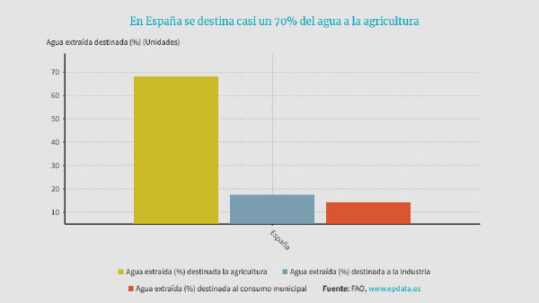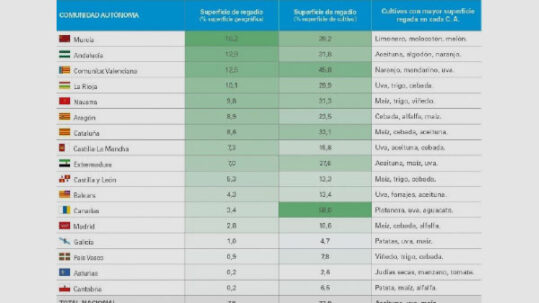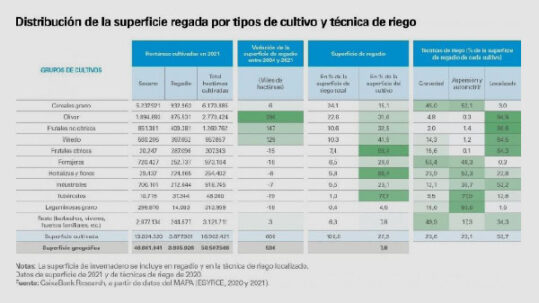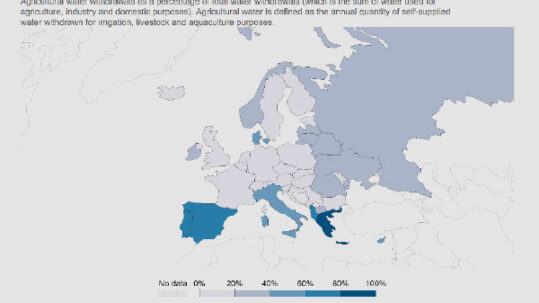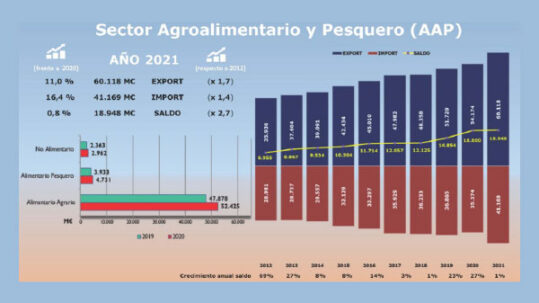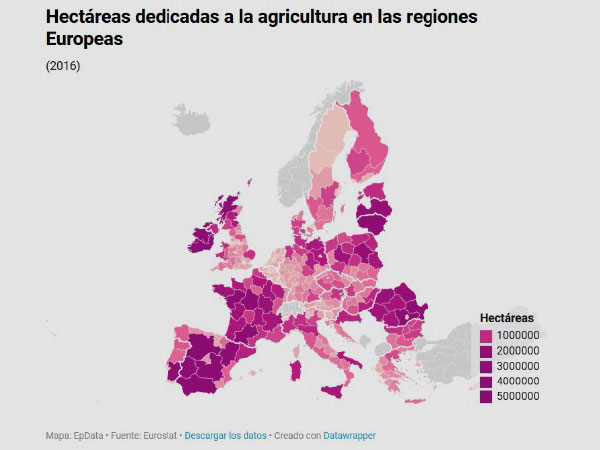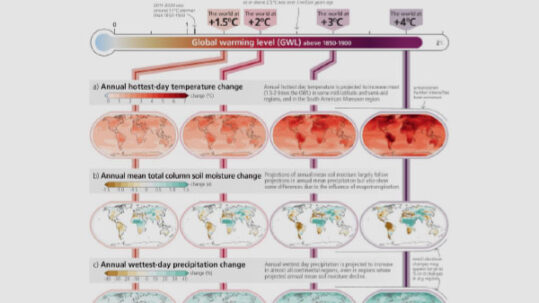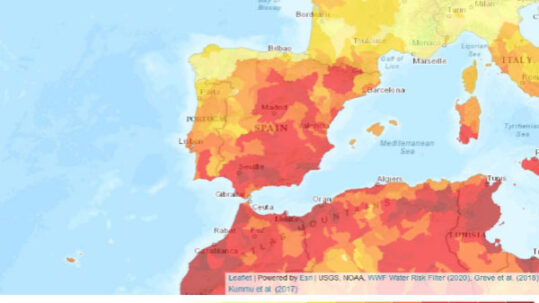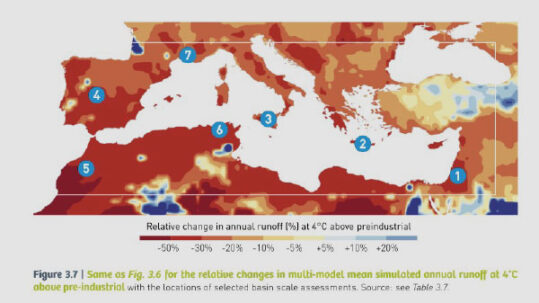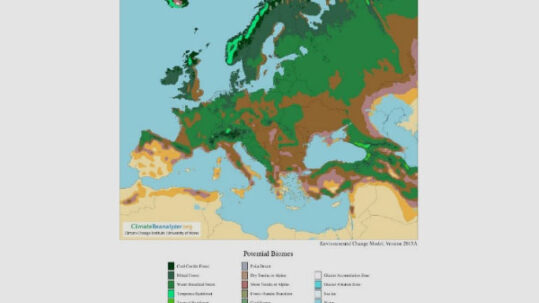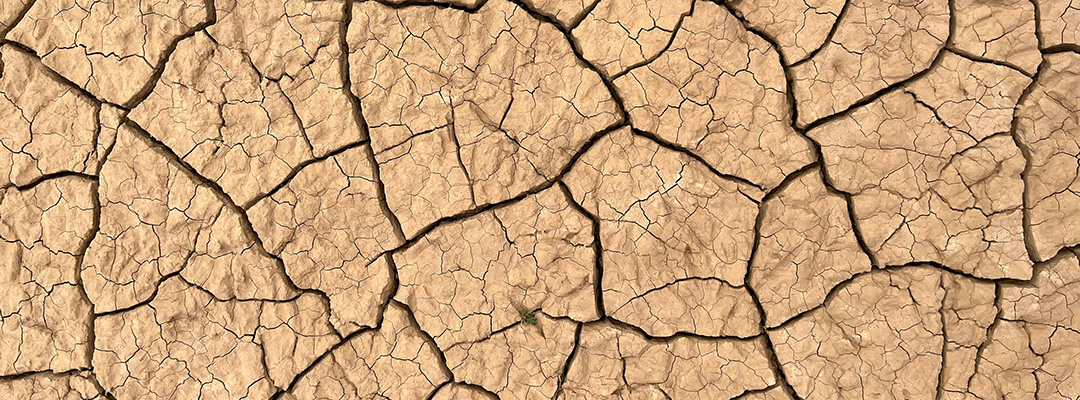
29 May Spain 2023, probably the coldest year in the rest of our lives
Between drought, declining agricultural yields and the risk of fires, the last few weeks have had summer heat wave overtones. In fact, the beginning of this year is particularly worrying in terms of managing the water resources needed to sustain agricultural production, the energy sector and, of course, our own consumption.
Reserves in 2023 are at their lowest levels in two years and are significantly lower than in the last decade.
Reserves in 2023 are at their lowest levels in two years and are significantly lower than in the last decade.
As the territory and climate of the peninsula are very extensive and varied, we observe very strong inequalities in local access to water resources, as shown in this map.
The current drought is therefore having a very noticeable impact on both the reduction in the availability of deep water resources and on agricultural yields due to soil dehydration.
Spain is currently one of the countries in the world with a high level of water stress, which, as we shall see, is of particular concern given the likely deterioration of the situation in the coming years.
Water Uses
How are water uses distributed at the national level? Almost 70% of the total quantities withdrawn are used to irrigate the country's agricultural production. Once again, we observe a great variability in irrigation rates depending on the type of crop, geography and agricultural practices. This can be explained by climates that require more water inputs, soils with low water absorption and conservation capacity, crops that are poorly adapted to the climate or agricultural practices that consume resources.
If we compare Spain with other European countries, we observe the preponderance of the agricultural sector in the country's total consumption. This has several causes, firstly, the climate of southern Europe naturally requires more irrigation than those of northern Europe. The hectares dedicated to agriculture are very large in Spain and, finally, the surplus trade balance of the Spanish agri-food sector also helps to explain this volume and growth of water needs.
Links to climate change
It has been demonstrated that if we do not succeed in drastically reducing our greenhouse gas emissions, we run the risk that the global average temperature will rise by +3*C or even +4*C by the end of the century, which would have serious consequences for ecosystems, which would be unable to adapt due to the rapidity of ecological disruptions, and which calls into question our capacity to adapt and the resilience of our economic and social organizations. The conclusions of the latest IPCC (Intergovernmental Panel on Climate Change) report are clear: each additional degree of global warming causes almost exponential disturbances, for example in the water cycle.
Future scenarios and impacts
In Spain, in a trend scenario of no reduction in greenhouse gas emissions by the international community, the projection models for 2050 (only 27 years from now), characterize water scarcity as high, high and even extreme in certain regions of the territory. The projections are even more alarming by the end of the century if nothing is done to drastically reduce our greenhouse gas emissions.
The combination of these negative repercussions on ecosystems would radically transform the territories; in fact, according to high global warming models, southern Spain could be transformed into a desert by the end of the century. Given that Spain is a major producer of food for its population, but also for export, this likely risk of a drop in supply should be taken into account in prospective scenarios for managing a food crisis.
Management of natural resources
“Cada individuo está encerrado en un sistema que le obliga a aumentar su ganancia sin límite, en un mundo que es limitado. La ruina es el destino hacia el que se precipitan todos los humanos, cada uno persiguiendo su propio interés en una sociedad que cree en la libertad de los comunes. La libertad en un procomún trae la ruina para todos.”
La tragedia de los bienes comunes, Garrett Hardin, 1968
¿Cómo garantizar los intereses individuales de acceso al recurso público y preservarlo al mismo tiempo para el resto de la colectividad? Esta es la pregunta que Garrett Hardin intentó responder en su artículo “La tragedia de los comunes”.
¿Cómo garantizar las necesidades de la población actual teniendo en cuenta las de las generaciones futuras? ¿Qué medidas deben adoptarse? ¿Qué tipo de gobernanza? ¿Qué usos deben privilegiarse y cuáles prohibirse?
Suele haber dos formas posibles de gestionar un recurso: la privación o la puesta en común. Según Elinor Ostrom, ganadora 2009 del Premio de Ciencias Económicas del Banco de Suecia en Memoria de Alfred Nobel(¨Premio Nobel de Economía¨), existe una tercera vía, denominada gestión comunitaria. Tras su análisis de ejemplos de propiedad comunitaria de recursos naturales, los resultados obtenidos le permiten concluir que este sistema es más eficiente, más productivo y más justo que los otros dos métodos habituales (gestión por el Estado o el mercado):
“Los agricultores con derechos de propiedad a largo plazo, que pueden comunicarse, desarrollar sus propios acuerdos, establecer las posiciones de los supervisores y sancionar a los que no se ajustan a sus propias reglas, tienen más probabilidades de cultivar más arroz, distribuir el agua de forma más equitativa y mantener sus sistemas en mejor estado de lo que se hace en los sistemas gubernamentales.” Ostrom, 2000
Según ella, los tres modos de gestión (propiedad privada, propiedad pública y propiedad comunitaria) no se oponen, se complementan, cada sistema puede tener un interés en función de la especificidad de la situación.
Elinor Ostrom propone algunos principios para la gestión comunitaria del agua:
Atributos de los recursos que apoyan la gestión comunitaria en Ostrom
– Recursos que no estén demasiado deteriorados y puedan renovarse. Para ello es necesario prever y gestionar a largo plazo.
– Indicadores para controlar el estado del recurso, su cantidad y calidad, a través de metodologías de análisis transparentes estado cuantitativo y cualitativo, mediante metodologías de análisis transparentes, sólidas y compartidas.
– Capacidad para predecir los recursos futuros disponibles, mediante la elaboración de múltiples escenarios y la gestión de riesgos.
– El conocimiento del perímetro del recurso para considerar el análisis sistémico en su totalidad integrando las dependencias externas.
Atributos de usuario para la gestión de comunidades en Ostrom
– Usuarios dependientes del recurso y una valoración justa del recurso que fomente la coordinación, en particular mediante normas contables que integren el coste de regeneración del recurso.
– Una visión compartida del recurso y de los efectos recíprocos de las acciones de los usuarios
– Confianza y reciprocidad entre los usuarios e inclusión de todos los usuarios afectados por las normas para garantizar una gestión democrática y justa.



